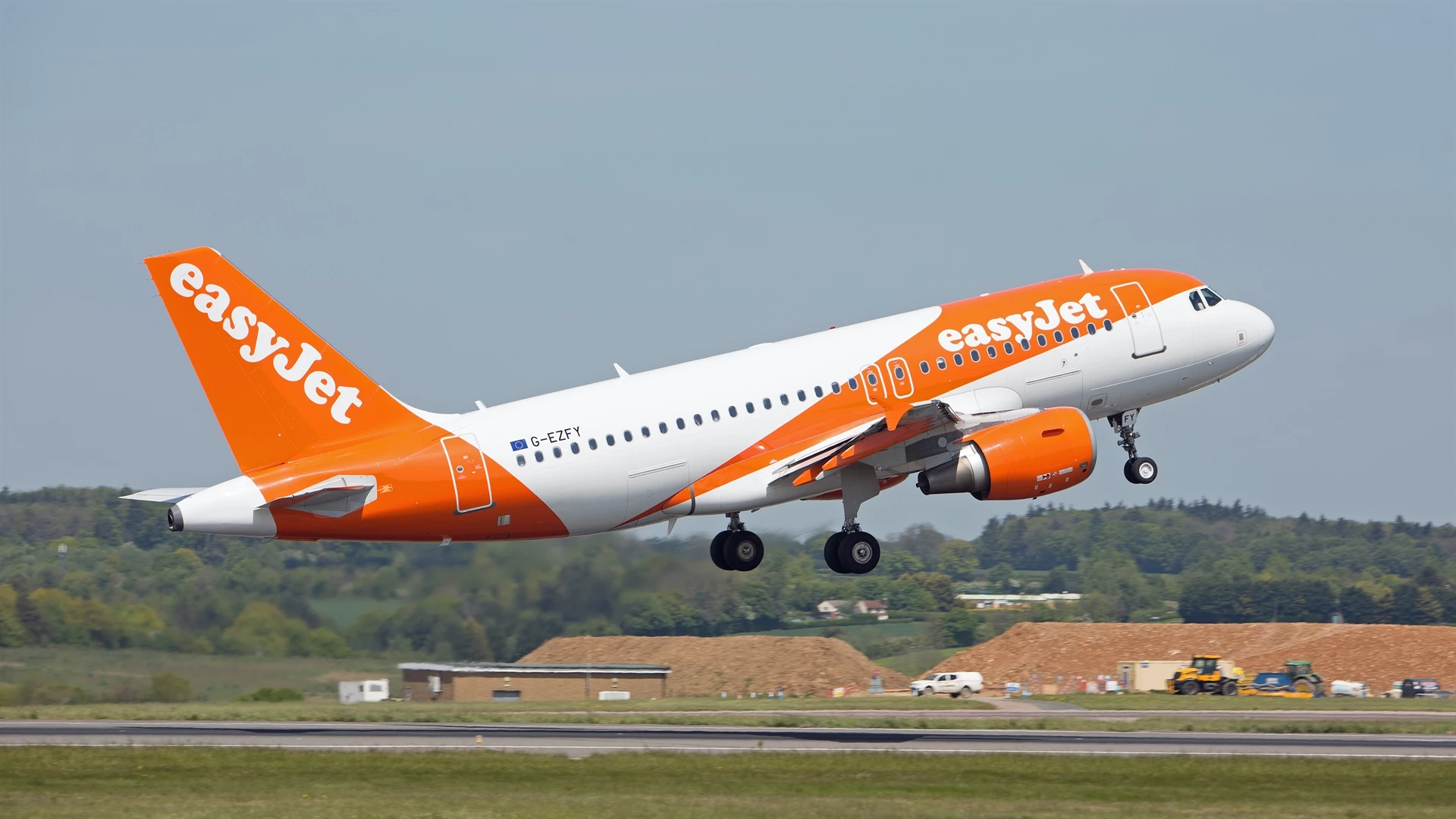- easyJet completes multi-million-pound tech installation that will save 88,600 tonnes of CO2 each year*
- All easyJet aircraft are now fully operating with Descent Profile Optimisation (DPO) and Continuous Descent Approach (CDA) software – state-of-the-art new software that significantly reduces carbon emissions and fuel costs
- The fleetwide investment is enabling the airline to make a permanent fuel saving of up to 1% or 88,600 metric tonnes of carbon dioxide annually – equivalent to driving a car around the world 16,100 times.
- The completion of the retrofit programme now means that the airline is the largest operator in the world with DPO and CDA capability.
London, UK, 2023-Oct-24 — /Travel PR News/ — easyJet has announced the completion of its fleetwide retrofit, which has seen Airbus’ Descent Profile Optimisation (DPO) state-of-the-art technology now fitted on all of its aircraft, alongside Continuous Descent Approach (CDA) for compatible, newer aircraft in the easyJet fleet.
Descent Profile Optimisation (DPO) is a fuel-saving initiative which updates the Flight Management System (FMS) to enable consistently more efficient descents by allowing the aircraft to remain in the cruise phase longer and removing the ‘level-off’ stage at the bottom of the descent, which reduces carbon emissions. While Continuous Descent Approach (CDA) works in tandem with DPO to reduce noise.
The multi-million-pound retrofit programme, announced last year, is an integral part of the airline’s roadmap to reach net-zero by 2050. It will help easyJet achieve considerable and permanent carbon emission reductions in the short-term by enabling more optimised descent trajectories.
As well as saving on fuel burn and ultimately enabling carbon reductions – Descent Profile Optimisation (DPO) which is complementary to Continuous Descent Approach (CDA)* will also help in minimising noise which not only benefits the airline and its customers but also the airports and surrounding communities as a result of tighter noise regulations that are starting to be enforced.
Commenting on the completion of the DPO and CDA retrofit programme, Captain David Morgan, Chief Operating Officer at easyJet said: “While this is one initiative of many outlined in our roadmap to net-zero, it provides a permanent CO2 saving and forms another step on the way to us realising our net-zero target.
“While technologies like DPO and CDA are the best solution for more optimised descent trajectories in the here and now – more needs to be done by governments and policymakers to ensure that our airspace is modernised, including implementing Single European Sky, so that this state-of-the-art technology can be used to its full potential.”
Nicholas Chretien, Senior Vice President of Sustainability & Environment at Airbus added:
‘Airbus is happy to accompany easyJet in its decarbonisation journey. Thanks to Airbus technologies, easyJet seamlessly upgraded their fleet with Descent Profile Optimisation; illustrating our ambition to work with our airline partners. These innovative solutions developed at Airbus enable airlines to increase fuel savings and reduce emissions during operations.”
easyJet continues to work with stakeholders and public authorities across Europe to advocate for the modernisation of airspace, including projects such as the Single European Sky and the UK’s airspace modernisation programme. For example, the Single European Sky has stated an ambition to deliver 10% carbon emissions savings from European aviation.
easyJet is also one of the founding members of the Single European Sky ATM Research (SESAR) 3 Joint Undertaking, an institutionalised European public-private partnership, to accelerate the delivery of the Digital European Sky.
easyJet was also the first airline evaluation partner for IRIS, a ground-breaking air traffic management programme, led by global satellite communications leader Inmarsat, together with the European Space Agency and Airbus, that is set to pave the way for more efficient air traffic management by enabling systems that minimise flight delays, save fuel and help reduce the environmental impact of air travel.
Notes to editors:
* Figures based on easyJet’s FY24 forecast
About easyJet
easyJet is Europe’s leading airline offering a unique and winning combination of the best route network connecting Europe’s primary airports, with great value fares and friendly service.
easyJet flies on more of Europe’s most popular routes than any other airline and carried more than 69 million passengers in 2022 – with 9.5 million travelling for business. The airline has over 300 aircraft on nearly 1000 routes to more than 150 airports across 35 countries. Over 300 million Europeans live within one hour’s drive of an easyJet airport.
easyJet aims to be a good corporate citizen, employing people on local contracts in eight countries across Europe in full compliance with national laws and recognising their trade unions. The airline supports several local charities and has a corporate partnership with UNICEF which has raised over £16m for the most vulnerable children since it was established in 2012.
The airline joined the UN-backed Race to Zero in November 2021 and has published its roadmap to net zero carbon emissions by 2050, with a focus on new technology and the ultimate ambition to achieve zero carbon emission flying across its entire fleet, which the airline is working on together with its partners including Airbus, Rolls-Royce, GKN Aerospace, and Cranfield Aerospace Solutions. The roadmap also features a combination of fleet renewal, operational efficiencies, airspace modernisation, Sustainable Aviation Fuel and carbon removal technology. Additionally, it includes an interim carbon emissions intensity reduction target of 35% by 2035 (versus 2019). Since 2000, the airline has already reduced its carbon emissions per passenger, per kilometre by one-third through continued fleet renewal, efficient operations and aiming to fill most of its seats.
Innovation is in easyJet’s DNA – since launching over 25 years ago, easyJet changed the way people fly to the present day where the airline leads the industry in digital, web, engineering and operational innovations to make travel more easy and affordable for its passengers.
Media Contact:
Press Office
01582 525252
www.easyJet.com
@easyJet_Press
Source: easyJet
###

